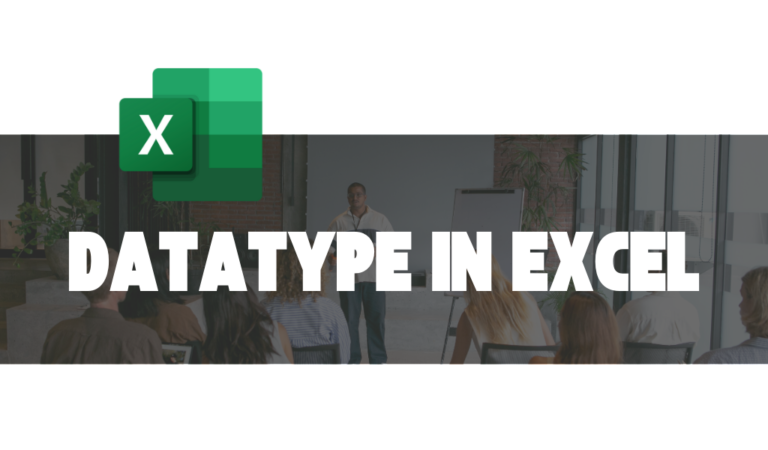Is AI Replacing Excel and Power BI? Here’s What You Need to Know

In today’s rapidly evolving tech landscape, AI models like ChatGPT and Microsoft Copilot appear to redefine how we work. From content creation to coding to data analysis, many tasks that once required manual effort and specialized knowledge can now be executed through intelligent prompts and automation.
Microsoft Copilot, now embedded across the Microsoft 365 suite, promises to reshape productivity entirely. It can automate emails, summarize documents, analyze data, generate visual reports, and even make proactive suggestions — all in natural language. Excel formulas that once took hours to learn? Copilot writes them in seconds. Power BI dashboards that once required a trained analyst? Now created on demand with a simple prompt.
Why spend weeks learning VLOOKUPs, nested IFs, or DAX when AI can handle the logic for you? Why study data modeling or dashboard design when Copilot can spin up visuals from raw tables in an instant?
This shift is often celebrated as the democratization of technology. More people can do more, faster, and with less technical training. Entry barriers are falling. The tools are becoming “smarter.” And with AI assisting — or in some cases, doing the work outright — the idea starts to form: perhaps we no longer need to know these tools at all.
Perhaps it’s time to say goodbye to Excel and Power BI.
Or so you are made to believe.
At the surface, it’s a compelling vision: faster output, less training, wider access. And to be clear, there is value in these tools — when used wisely, AI can drastically improve efficiency and reduce friction. But the notion that AI makes deep understanding unnecessary is not just misleading — it’s potentially dangerous.
Let’s unpack the assumptions.
Yes, Copilot can generate a dashboard. But how does it decide what to show? Which measures matter most to your business? What does “success” look like in this dataset? AI doesn’t know unless you tell it, and it will only ever reflect what it’s been trained on or what you’ve fed it. It cannot interpret business strategy, spot subtle patterns, or understand the politics behind performance metrics. It can’t distinguish between a data anomaly and a critical red flag — unless you know the difference.
And yes, Copilot can write formulas. But will those formulas be efficient? Accurate? Maintainable? Will they scale as your model grows, or break silently when the data changes? Can you troubleshoot them when they return unexpected results? You can copy the outcome, but if you don’t understand the logic, you’re left trusting a black box in situations that demand precision.
Why Foundational Knowledge Still Matters
The tools themselves — Excel, Power BI — aren’t just about doing tasks. They are frameworks for thinking. Building a report in Power BI forces you to define relationships, hierarchies, and data flows. Writing a formula in Excel demands logic, sequencing, and decision-making. These are not just technical skills — they’re analytical ones. And when we offload the execution to AI without preserving the understanding, we lose more than time — we lose insight.
AI also lacks context. It doesn’t know that last month’s spike in sales was due to a one-time promotion. It doesn’t realize that “customer” can mean different things in different departments. It can’t sense the politics behind which KPIs get prioritized. These are the invisible threads that hold data work together, and AI can’t infer them unless someone explicitly tells it.
Even worse, AI can confidently generate wrong answers. It can hallucinate functions that don’t exist. Misinterpret ambiguous prompts. Or suggest approaches that seem valid but are fundamentally flawed in your specific use case. And because it responds fluently and persuasively, it creates a false sense of certainty, especially for users who don’t know enough to question it.
Productivity vs. Proficiency
This isn’t to say AI is without merit. Far from it. It can be a powerful accelerator for those who already understand the terrain. Experienced users can use AI to automate tedious steps, validate ideas quickly, or enhance what they’ve built. For a trained analyst, Copilot is like a trusted assistant. For someone untrained, it’s more like a blindfolded co-pilot with a friendly voice.
The promise of “doing more with less” is only real if you understand what you’re doing. Otherwise, it becomes “doing more with less clarity.”
And in data work, clarity is everything.
The Real Future of Work
So no, it’s not time to say goodbye to Excel and Power BI.
It’s time to engage with them more deeply, using AI as a supplement, not a substitute. We need to treat Copilot not as a magic solution, but as a partner — one that works best when paired with human judgment, domain expertise, and critical thinking.
AI can help us work faster. But we still need to know what we’re building, why it matters, and how to evaluate its effectiveness.
Because in the end, it’s not just about generating outputs.
It’s about making decisions.
And that, for now, still requires us.





